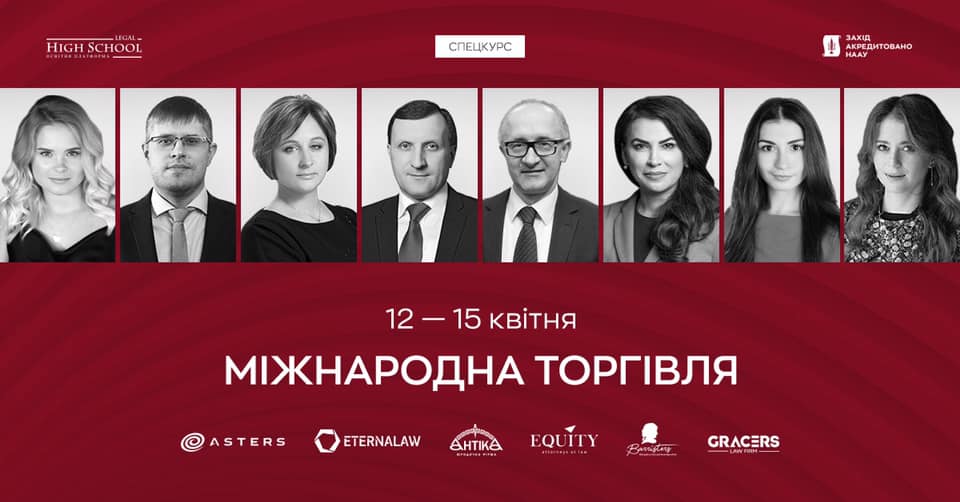
On April 12 there was held the first module “International Trade” within the special course “International Trade” of the Legal High School. Yaroslav Romanchuk, Managing Partner of EUCON, attorney at law participated the event as a lecturer.
Focusing on the specifics of attracting financial resources and financial instruments of the EU the speaker began his speech by recalling the trade opportunities opened by the signing of the Association Agreement between Ukraine and the EU, in particular the transition from partnership and cooperation to political association and economic integration. For example, one of the components of the Association Agreement was the Agreement on a Free Trade Area between Ukraine and the EU, under which Ukraine gained access to certain EU financial instruments.
Inter alia the expert noted the Eastern Partnership Program to be one of the promising tools. By the way, the Program includes Ukraine, Azerbaijan, Belarus, Armenia, Georgia and Moldova.
Yaroslav Romanchuk also announced statistics on macroeconomic assistance to Ukraine from the EU for 2014-2020 in the amount of EUR 12.8 billion, of which about 10 billion have been received so far. In addition, the speaker noted that despite all the negative factors (including Brexit process) the revenue side of the EU budget has increased by almost 80 per cent. The expert stressed that the draft EU budget for 2021-2027 will provide funds for Eastern European countries’ development.
The speaker reviewed in detail the types of subsidy instruments operating within the EU and other countries: for example, he singled out cross-border programs, smaller funds and instruments originating from the EU, programs of EU governments (Germany, Denmark, Poland), programs of EOG member countries (Norway, Switzerland) and programs of regional associations (Visegrad Group).
The expert stressed that the widest range of financial instruments for attracting financing is available to small and medium-sized businesses, as there are many opportunities to attract grants for their development from EU organizations and other countries, including the ever largest research, innovation and technology grant program Horizon 2020.
Mr. Romanchuk focused on four types of financial resources, namely: own funds, bank resources, investment resources and subsidy resources. Thus, he stressed that while the least profitable for the entrepreneur is the use of own funds due to taxation, it is far more advisable to consider subsidy resources. As far as the subsidy resources are the cheapest among investment, so he focused thereon in detail.
“One of the key factors for obtaining financing is the reputation of the borrower,” said the lecturer, analyzing the types of EU-funded projects and the conditions for obtaining financing. In his opinion, the most important factors are the reputation of the legal entity, the reputation of its owners, the reputation of top managers and the reputation of the heads of accounting services.
At the conclusion of his speech Yaroslav Romanchuk analyzed practical examples of the possibility of attracting EU financial instruments for business development in Poland, and shared his experience in using the opportunities that exist for Ukrainian business to enter EU markets through Polish jurisdiction.